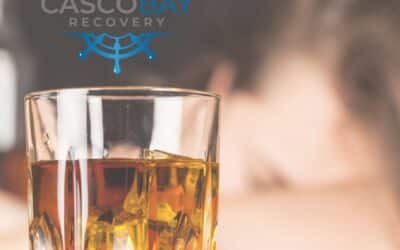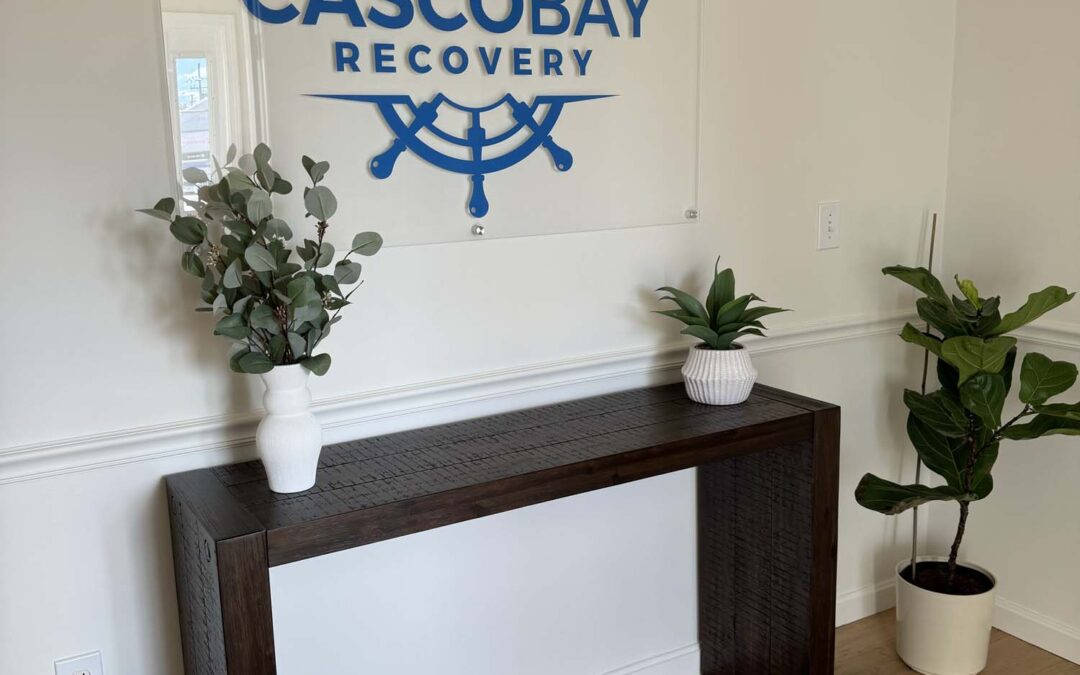Alcohol dependence, also known as Alcohol Use Disorder (AUD), is a serious condition characterized by an inability to control alcohol consumption despite negative consequences. It can have a devastating impact on your physical and mental health, relationships, and career. If you’re struggling with alcohol dependence, know that you’re not alone and there is help available. Overcoming alcohol dependence takes time, dedication, and the right support system. This guide from Casco Bay Recovery will equip you with the knowledge and resources to embark on your journey to recovery.
Understanding Alcohol Dependence
Before diving into the steps to overcome alcohol dependence, it’s crucial to understand the condition. The National Institute on Alcohol Abuse and Alcoholism (NIAAA) defines AUD as a spectrum of alcohol problems ranging from mild to severe. Individuals with AUD experience uncontrollable cravings, difficulty limiting drinking, and continue to drink despite experiencing negative consequences.
Symptoms of Alcohol Dependence
There are several signs and symptoms that may indicate alcohol dependence. These include:
- Difficulty stopping drinking once you start
- Needing to drink more and more alcohol to get the same effect (tolerance)
- Experiencing withdrawal symptoms when you stop drinking (such as anxiety, sweating, and tremors)
- Feeling like you need to drink to function normally (dependence)
- Giving up important activities or neglecting responsibilities due to drinking
- Continuing to drink despite experiencing negative consequences on your health, relationships, or work
If you recognize these signs in yourself or someone you care about, seeking professional help is crucial.
Living with Alcohol Dependence
Recovery from alcohol dependence is a lifelong journey. There will be challenges along the way, but with the right support system and a commitment to your well-being, you can build a fulfilling and healthy life. Here are some additional points to consider:
- Self-Compassion: Be kind to yourself throughout the recovery process. Focus on celebrating your progress, no matter how small.
- Honesty: Maintaining honesty with yourself, your therapist, and support system is crucial. Open communication allows for timely intervention and course correction if needed.
- Setbacks Are Not Failures: A slip-up doesn’t erase your progress. View it as a learning experience and recommit to your recovery plan. Casco Bay Recovery offers resources to help you get back on track after a relapse.
Steps to Overcoming Alcohol Dependence
Overcoming alcohol dependence requires a multi-faceted approach. Here’s a breakdown of the key steps to guide you on your path to recovery:
1. Detoxification
Detoxification is the initial step, where your body rids itself of alcohol. This process can be medically supervised to manage withdrawal symptoms, which can be uncomfortable and even dangerous. Casco Bay Recovery offers a safe and supportive environment for detoxification under the care of medical professionals.
2. Treatment Programs
Following detoxification, enrolling in a comprehensive treatment program is essential. There are various treatment options available, including:
- Inpatient Treatment: Provides 24/7 care and support in a structured environment. This is ideal for individuals with severe dependence or those who have struggled with maintaining sobriety in the past.
- Outpatient Treatment: Offers flexibility, allowing you to continue living at home while attending therapy sessions and participating in support groups.
3. Therapy
Therapy plays a crucial role in addressing the underlying causes of alcohol dependence. It helps you develop coping mechanisms, deal with triggers, and prevent relapse. Casco Bay Recovery offers various therapy options, including individual therapy, group therapy, and family therapy.
4. Support Groups
Joining a support group like Alcoholics Anonymous (AA) connects you with others who understand your struggles. Sharing experiences, offering encouragement, and holding each other accountable can be invaluable during recovery.
5. Building a Healthy Lifestyle
Developing healthy habits supports your overall well-being and strengthens your recovery. This includes:
- Regular Exercise: Physical activity reduces stress, improves mood, and promotes better sleep – all factors conducive to recovery.
- Healthy Eating: A balanced diet provides essential nutrients that support your physical and mental health.
- Stress Management Techniques: Learning healthy ways to manage stress, such as meditation or yoga, can help you cope without resorting to alcohol.
- Building Strong Relationships: Surround yourself with supportive and encouraging people who respect your commitment to sobriety.
6. Relapse Prevention
Relapse is a possibility in recovery. However, by planning for it, you can increase your chances of staying on track. Here are some tips:
- Identify Your Triggers: Recognize situations, emotions, or people that tempt you to drink. Develop strategies to cope with these triggers without turning to alcohol.
- Develop a Relapse Prevention Plan: Create a plan of action for what you will do if you experience cravings or feel tempted to drink. This may involve reaching out to your therapist, sponsor, or support group.
Finding the Right Treatment for Alcohol Dependence
The best treatment program for you will depend on the severity of your dependence, individual needs, and lifestyle. Casco Bay Recovery offers a free assessment to help you determine the most suitable treatment option. Here’s a closer look at some treatment approaches:
- Cognitive Behavioral Therapy (CBT): CBT helps you identify and change negative thought patterns that contribute to your drinking behavior.
- Motivational Enhancement Therapy (MET): MET helps you explore your ambivalence about quitting and build motivation for change.
- Medication-Assisted Treatment (MAT): MAT combines medication with behavioral therapy to manage cravings and withdrawal symptoms.
Support Groups for Alcohol Dependence
Support groups offer a safe space to connect with others who understand the challenges of overcoming alcohol dependence. Here are some well-established options:
- Alcoholics Anonymous (AA): A 12-step program that emphasizes peer support and spiritual growth.
- SMART Recovery: A science-based program that focuses on building skills to manage your cravings and maintain sobriety.
- Women for Sobriety: A support group specifically for women struggling with alcohol dependence.
Building a Healthy Lifestyle
Developing healthy habits is essential for long-term recovery. Here are some specific recommendations:
- Regular Exercise: Aim for at least 30 minutes of moderate-intensity exercise most days of the week. Explore activities you enjoy, such as brisk walking, swimming, or dancing.
- Healthy Eating: Focus on a balanced diet rich in fruits, vegetables, whole grains, and lean protein. Avoid processed foods, sugary drinks, and excessive caffeine, which can disrupt sleep and exacerbate cravings.
- Stress Management Techniques: Develop healthy coping mechanisms to manage stress without resorting to alcohol. Practices like yoga, meditation, or deep breathing exercises can be very helpful.
- Building Strong Relationships: Surround yourself with supportive and understanding people who respect your commitment to sobriety. Spend time with loved ones who value you for who you are, not your drinking habits.
Overcoming alcohol dependence
Overcoming alcohol dependence is a courageous step towards a healthier and happier life. Remember, you are not alone in this journey. Casco Bay Recovery offers comprehensive treatment programs, therapy services, and a supportive environment to guide you on your path to lasting recovery. Contact us today to take the first step towards a brighter future free from alcohol dependence.








